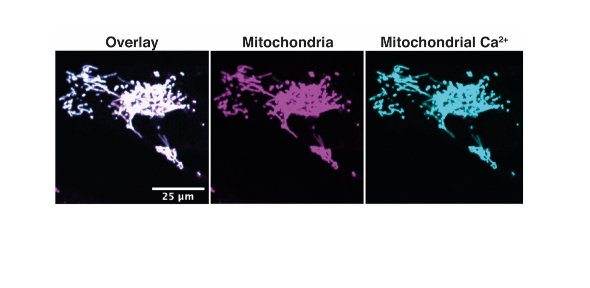
Submitted by Penny Peck on Mon, 13/09/2021 - 00:00
SMARCA4 and SMARCA2 are two mutually exclusive ATPase subunits of the SWI/SNF family, which are involved in chromatin remodeling to control gene expression. Dual loss of SMARCA4/2, by mutations and other mechanisms, has been shown to be responsible for a subset of lung (non-small cell) and ovarian (small cell carcinoma of the ovary, hypercalcemic type) cancers. These aggressive cancers are associated with poor patient prognosis and chemotherapy resistance. The molecular mechanism by which these cancer cells escape chemotherapy is not well understood.
A new international collaborative study published in Nature Communications from the labs of Dr Julien Prudent at the MRC Mitochondrial Biology Unit, University of Cambridge, UK, and Dr Sidong Huang at the Rosalind & Morris Goodman Cancer Research Institute, McGill University, Montreal, Canada, sheds new light on this mechanism. Using in vitro and in vivo models, their work dissected how SMARCA4/2-deficient cancer cells have adapted to resist cell death. In this study, they showed that SMARCA4/2 loss in cancer cells reduces the expression of the endoplasmic reticulum (ER)-Ca2+ channel inositol trisphosphate receptor-3 (IP3R3), a key channel involved in the transfer of Ca2+ from the ER to mitochondria, a multifunctional organelle controlling the cell death programme. This reduced expression of IP3R3 led to a decrease of Ca2+ transfer to the mitochondria, ultimately driving the resistance to the apoptotic cancer cell death. Importantly, they discovered that reactivation of SMARCA2 by a histone deacetylase inhibitor rescued IP3R3 expression, Ca2+ transfer and enhanced chemotherapy response and cell death in SMARCA4/2-deficient cancer cells both in vitro and in vivo. This work elucidates the contribution of SMARCA4/2 to Ca2+-dependent apoptosis induction opening potential new therapeutical avenues, which may be exploited to enhance chemotherapy response in SMARCA4/2-deficient cancers.
https://www.nature.com/articles/s41467-021-25260-9
Full publication reference:
Yibo Xue, Jordan Morris, Kangning Yang et al. (2021) SMARCA4/2 loss inhibits chemotherapy-induced apoptosis by restricting IP3R3-mediated Ca2+ flux to mitochondria. Nat Commun 12, 5404

